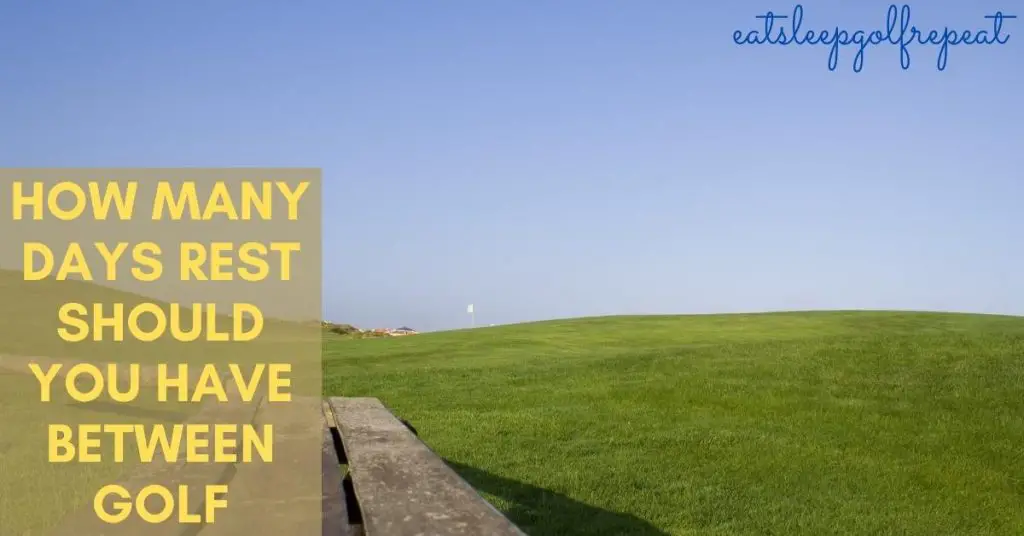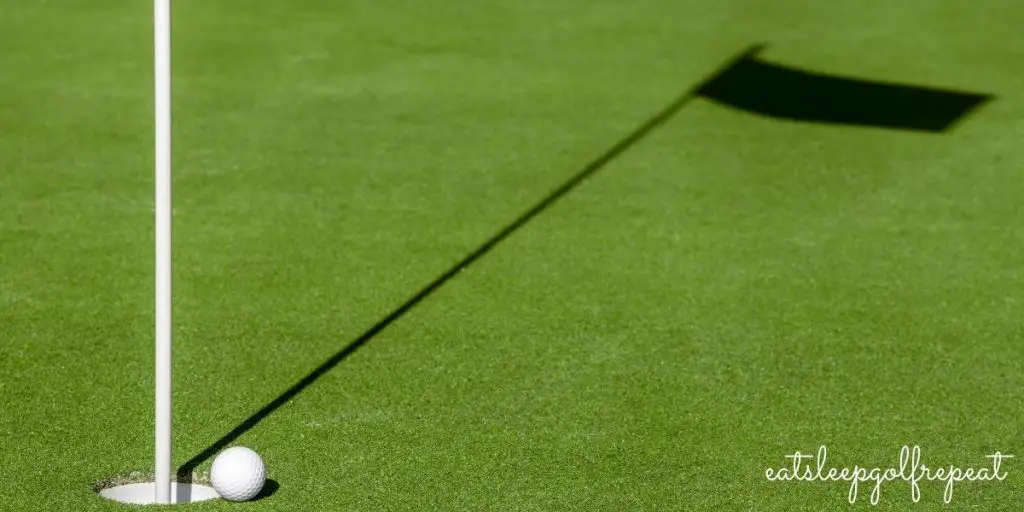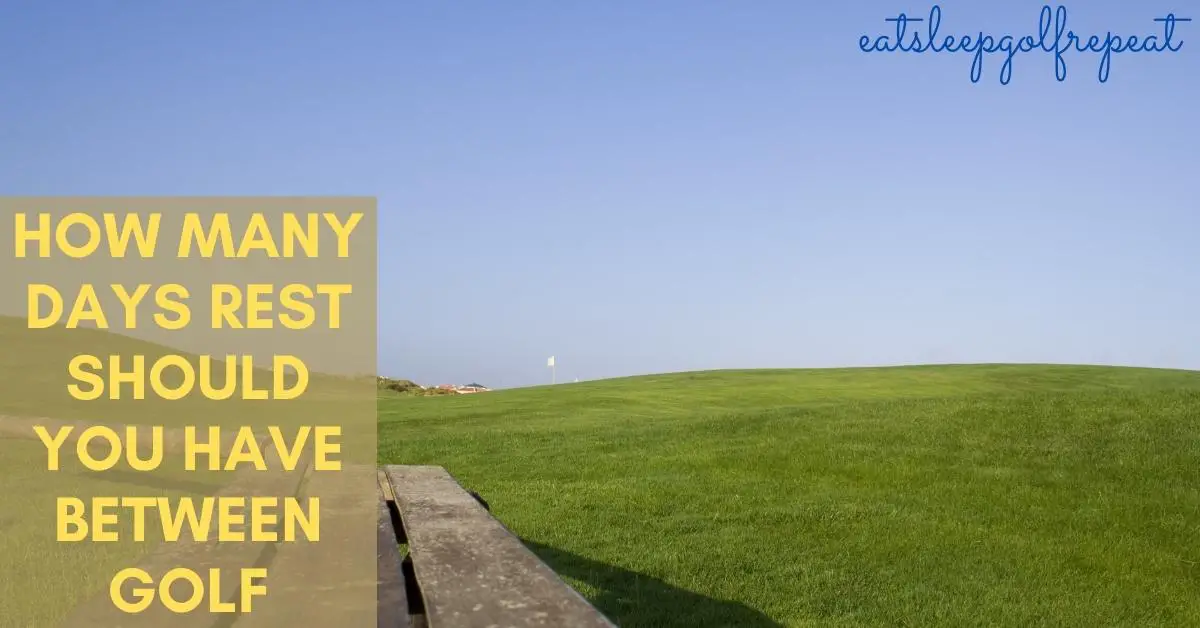
How Many Days Rest Should You Have Between Golf
If you’re an avid golfer, the chances are that you have caught the bug and want to play as often as possible, but could this be detrimental to you?
The truth is that playing golf for multiple days in a row can exhaust you both physically and mentally – this is not going to be good for your game.
It pays to take a rest and allow yourself to recover, and in this article, we will be exploring how often you should take a rest and the best ways to recover between games.
How Many Days Rest Should You Have Between Golf?
One of the things that people who are unfamiliar with golf falsely believe is that this is a gentle sport that doesn’t cause you to overexert yourself, but this couldn’t be further from the truth.
For one, you’re on your feet for lengthy periods of time, and there is a lot of walking involved.
Aside from this, there is the obvious exertion of those swings, and if you are carrying a heavy bag, this will also add to the physical strain on your body.
One thing is for sure, golf is a very valid form of exercise, particularly if you play regularly.
Additionally, a game of golf will require you to use your mind – this is a strategic game, after all, and if you are playing multiple games in a row, you may end up feeling mentally exhausted.
How often you rest will largely depend on your own physical and mental strengths – each one of us is entirely different, and what may work well for one person could be horrendous for another.
The most important thing is to listen to your body, and if it is telling you that you need to take a break, you should take heed.
The best way to manage your weekly golf schedule is to work out how much you can handle without feeling drained and plan your games out around this.
For example, if you can comfortably play a game for three days in a row, then do this and take a rest on the fourth day.

However, if in contrast, you feel shattered after a single game, don’t force yourself to go again the following day.
Doing this could cause you more harm than good.
Most hobby golfers agree that three days in a row is more than enough to satisfy your desire to play as well as preventing you from meeting your physical and mental limits.
That being said, you could mix things up and play a full game twice a week, with the in-between days being dedicated to a single hour of practice.
The only time that you should play more frequently than this is generally during a tournament – however, if you are playing more often, it is crucial to take good care of your body.
The Risks Of Playing Too Often
We know what it’s like – you’re exhausted, you’ve played for days, but you’re sure that you can manage just…one…more….game.
While this can be tempting, it pays to admit defeat and take that well-earned day of rest.
If you don’t, the consequences could be severe, and you may find that you are out of action for a lot longer than just one day.
The risks of not taking a break could include any of the following:
● Dehydration, particularly if you are playing in warmer weather and neglecting to remain hydrated.
● Strained muscles.
● Back pain.
● Fatigue.
● Injury as a result of the strain on your body, leaving you unable to play at all.
● Decreased focus and concentration.
None of the above points are beneficial, and even if you do manage to muster up the energy to continue playing, your game is going to suffer drastically.

The Health Benefits Of Golf
While it is important to take frequent days off from golf, there is no denying that this is a sport which provides many health benefits.
Exercise and wellbeing have never been more prominent topics than they are in this modern-da.
It is not surprising when we consider how quickly obesity rates are rising and how many more cases of heart disease, diabetes and other lifestyle-related illnesses there are.
If you have chosen golf as your go-to sport, you may have not even considered the health benefits.
After all, many people get into golf as a social sport or simply because they find it enjoyable.
But when you consider the physicality of the sport, it becomes a lot easier to recognise that many advantages to your health.
● Golf is seen to be a moderate physical activity and, as such, is a great way to get the blood rate up and the heart pumping more quickly. This type of cardiovascular stimulation is vital to your health for many reasons, including a decreased risk of heart attack, burning calories and maintaining healthy blood pressure.
● If you are keen to get in your 10,000 steps each day, then a game of golf is going to help you achieve this quickly.
● Being out in the fresh air and taking part in regular exercise can improve the quality of your sleep, which, as we all know, is vital for overall health and wellbeing.
● Golf is a great way to lose weight. Whilst out on the course, a golfer can lose, on average 2kg in a single game. Much of this will be water; however, over time, you will burn more calories and lose those extra pounds.

How To Make The Most Of A Golfing Break
If you have found that a day off the course is in order, there are many ways in which you can maximise the advantages of this time and ensure that once you pick up those clubs again, you are in better form than ever.
Hydration
As we mentioned, dehydration is a common problem among golfers, so it is essential that whilst you take your rest that you drink plenty of fluids – water being the best option.
Keeping your body hydrated is vital for proper recovery.
Moreover, you should take this back onto the course with you and ensure that you replace any lost fluids after each round.
According to experts, golfers should be drinking a litre of water for every kilo they lose in weight whilst on the course.
Most surprising is that much of the weight you shed whilst playing is a result of lost water.
Over time, if you ignore your hydration levels, this could be devastating, physically.
Mental Recovery
What many non-golfers fail to understand is that this is an exceptionally mentally exhausting game.
Studies have shown that golf can be beneficial to your mental wellbeing, but too much of a good thing could have the opposite effect.
The concentration and focus that is required to complete a round of golf are enormous, and you must give yourself a chance to unwind.
One of the best ways to do this is to have a debrief with your fellow players or keep a debrief journal, and the most important thing here is not to simply focus on the bad shots but pay some attention to the things you did well.
Physical Recovery
Despite its calm reputation, golf is very physically demanding, and quite often golfers find that they struggle with stiffness, pain and strains that can cause them to be out of the game if not attended to.
Getting a massage from a trained physiotherapist can help with relieving tight muscles.
Still, if this is not an option, there are an excellent variety of massage balls and machines that will do just as effective a job.
Furthermore, merely allowing the muscles time to relax and recover will have you back on the course in no time.
Conclusion - How Many Days Rest Should You Have Between Golf
When it comes to how many days rest you should have between golf games, one of the main determining factors will be your own physical and mental abilities.
Some people may find that one game wears them out sufficiently enough to take a break, while other people may be able to play for a few days without flaking. Most importantly, you should listen to your body and let it decide for you.
However, on average, golfers can usually play for three days in a row before needing to take a break.
The only exception to this is if a tournament is taking place, in which case, you may be required to play for longer.
When taking a few days to rest between golf games, you should pay attention to your physical and mental needs and address these accordingly.
This will help you to return to the course with the confidence that you are at the top of your game.

